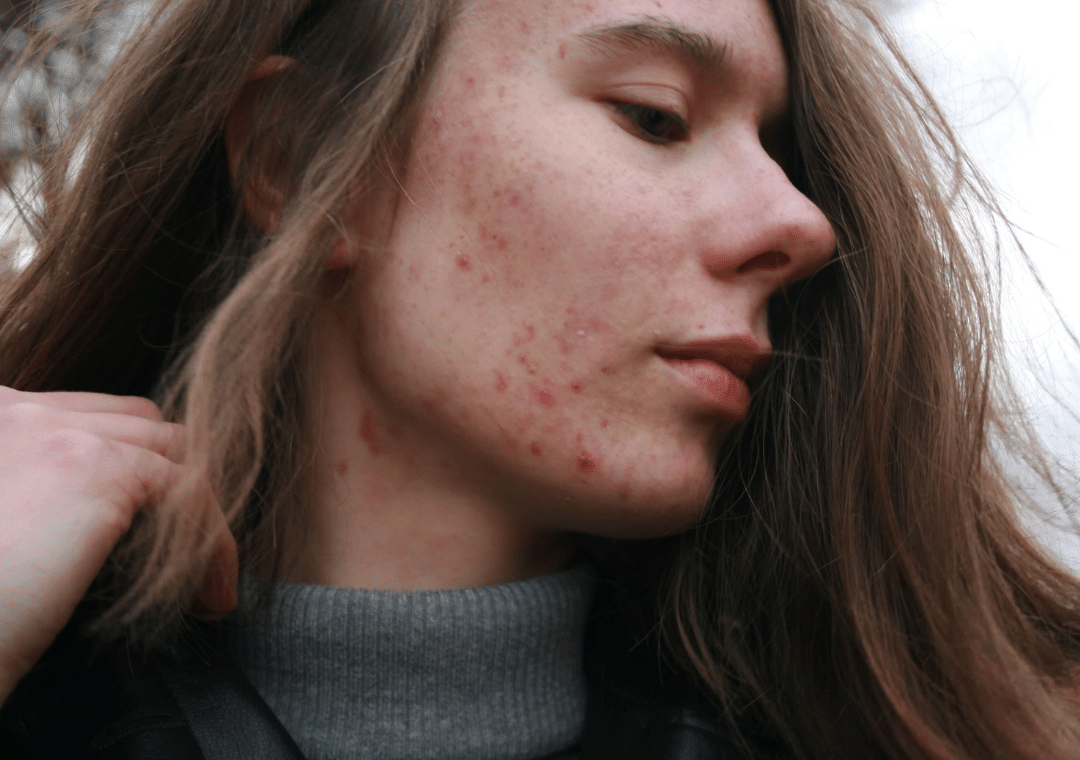Acne is a super common result of hormonal imbalances, so it’s not a surprise that it can be an aggravating side effect of Polycystic Ovarian Syndrome (PCOS).
What’s PCOS, you ask? It’s characterized by the overproduction of male hormones (androgens) like testosterone, and the failure to regularly release eggs. Irregular periods are a common sign of PCOS, as well as enlarged ovaries.
Let’s talk acne
In your skin dwells these little things called sebaceous glands. They release sebum which is an oily, waxy kind of liquid that keeps your skin moist and helps with waterproofing your bod & hair. Sebaceous glands exist heavily on your scalp and your face- when it’s super hot outside they help your stay hydrated by emulsifying your sweat instead of it immediately falling off your body. Cool, right?
Yeah, until our hormones interfere.
High levels of androgens and insulin (hello PCOS) increase how much sebum is produced by the sebaceous glands (1). Increased sebum and lead to blockage in the gland duct which causes acne. Blackheads are open, whereas whitehead are closed by the skin. It’s when you have a lot of pimples and inflammation that it is considered acne (2).
PCOS & acne
Acne related to this condition tends to appear in areas that are sensitive to changes in hormones. This can include anywhere from your upper neck stretching up to your cheeks, and the skin between. It's not rare to find your back is subject to breakouts, too. Rather than surface pimples like a lot of women get, PCOS might involve tender knots beneath the skin- this is called cystic acne.
Put up a fight
NAC (N-Acetyl cysteine) is a powerful antioxidant supplement that can help lower testosterone levels and support egg maturation & ovulatory function. One study suggests NAC can improve insulin levels and sensitivity. That’s why BINTO includes NAC for PCOS support.
Daily probiotics can help keep your hormones in check while promoting gut health. The added bonus? Probiotics are great from improving immunity which can also cause issues with breakouts.
Sources
- https://www.ncbi.nlm.nih.gov/pmc/articles/PMC3969667/
- https://www.ncbi.nlm.nih.gov/pubmedhealth/PMHT0025360/

